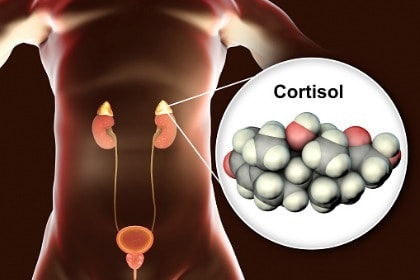Video Transcript:
One of the most common questions that I get from my patients is should I take magnesium? And what forms of magnesium should I take? What dosing should I take? How do I even know if I need magnesium?
So, I want to really go into a deep dive with you in terms of understanding, what does magnesium do? What are the assorted forms? How do they function? How might they be beneficial to your health? And then also to give you some recommendations of how to consume magnesium on a daily basis.
Diminishing Magnesium Levels
So, first off, let me share with you an assortment of benefits that your body is going to experience by adding a daily magnesium supplement. Before we go into these benefits, it’s really important to know that about 98, 99% of us experience some degree of sub-optimal magnesium levels and this comes from an assortment of reasons.
One, our water sources are deficient in magnesium. Where we used to drink mineral-dense water, our waters are now mineral lacking or are filtered. The minerals are filtered out and we’re not getting that in our water.
Then, the second thing that we see is that our fruit and vegetables, the plant-based nutrients that used to be plentiful in fruits and vegetables, we’ve seen a significant decrease in the magnesium levels in our soil that’s getting absorbed from our food sources.
So often, people think, “Oh, if I eat more fruits and veggies and maybe add some seeds and nuts, I’m going to increase my magnesium level.” But that is just not the case. And we know that science supports this in terms of assessing mineral levels and hair samples. And we can see it in soft tissue and even blood draws where we are not optimizing our magnesium.
Benefits of Optimal Magnesium Levels
So, the benefits of magnesium… we want to optimize magnesium because it is a critical compound that is needed and involved in over 600 different enzymatic reactions within your body. Some simple and some complex reactions, but all require optimized magnesium levels. And if we are in a deficient state, we’re just not able to achieve those enzymatic reactions, thereby creating deficiency within your body. Magnesium is one of seven essential macro minerals, so we need to make sure that we have that balanced and optimized.
Reduces Stress & Promotes Relaxation
And then, this is really one of my favorites, as far as benefits, magnesium actually positively affects our neurotransmitters and it really enhances and increases GABA, one of the most important neurotransmitters to reduce stress levels and promotes relaxation.
So, if you’re stressed out, magnesium is going to increase your GABA, calming your body down, but it’s not just your state of feeling emotionally balanced. You’re also going to get an actual balance between your parasympathetic and your sympathetic nervous system. That GABA enhancement will balance out our central nervous system. And so, if you’re dealing with any anxiety or panic attacks or elevated heart rate, that can really be powerful.
Supports an Overall Healthy Body
The other thing that is really impactful with magnesium is that it is an absolute necessary element to keep our body overall healthy. And it’s because it is a macro mineral, because it is utilized in over 600 enzymatic reactions. If you are deficient, any degree of deficiency in magnesium, you’re not really operating within a healthy body.
Manages Fluid Levels & Optimizes Digestion
Magnesium is also an electrolyte. And as an electrolyte, it is a critical compound to maintaining the right fluid balance. As a lymphatic therapist, I work with a lot of folks that are inflamed, holding fluid, and deal with lymphatic impairment. The magnesium has this amazing capacity to take fluid that’s sitting in what we call the interstitial space – that’s fluid in amongst our cells in between soft tissue and organ and glandular matter. And it can help articulate that, pulling that fluid out where it should be harboring itself and flushing that into the digestive process, which also supports our healthy bowel movements and process of our digestion. So, magnesium is really an underlying element in promoting your lymphatic system, as well as optimizing your digestive processes.
Promotes Metabolic Health & Better Sleep
The other thing that’s really, really important to understand with magnesium is magnesium will protect your metabolic health. This comes in the way of helping balance out neurotransmitters. It also comes in the way of supporting your nerve function, and actually aids in balancing the central nervous system, helping you sleep better, which promotes good, healthy metabolic health by promoting the lymphatic system – the detoxing of our brain, and keeping our brain optimized.
Helps Offset Protein Deficiency & Supports Bone Health
We also find that magnesium can offset protein deficiency and any type of oxidative stress on your body that might be causing subtle changes to your DNA or causing changes to your bone density. So, magnesium will help build up the protein stores in your body. These are metabolic proteins, we sometimes call them systemic proteins or systemic enzymes, proteolytic enzymes. Magnesium is needed for your body to naturally make serrapeptase and nattokinase and certain really powerful metabolic proteins.
We also see that magnesium can support the articulation of calcium to our bones and our nails and our teeth. If you experience any type of weakness in your nails, or you noticed you maybe have more dental carries, dental cavities from a lack of remineralization. Or maybe you’ve been diagnosed with osteoporosis or osteopenia, which is the scaling, you start with osteopenia, and then it progresses into osteoporosis. Both of those are reversible and can be greatly enhanced by adding magnesium into your body.
Enhances Muscle & Nerve Function
And the last and final thing that’s really important to understand with magnesium and some of the benefits that, overall, support your body is it can help enhance your muscle function and your nerve function. And there are certain forms of magnesium where we see this being more powerful.
Helps Key Nutrient Absorption & Assimilation
Here at Organixx, we have magnesium orotate added to our Mag 7 Complexx. And what I love about the orotate, that form of magnesium, is it is very helpful in helping your body enhance and convert the nutrients that you’re consuming and also producing in your body. It helps enhance your B12 and folic acid absorption and assimilation.
Magnesium can sometimes be the reason… I see some of my patients in what we’d say, or label as a subclinical anemia, or maybe they’re presenting with an inability for their body, the cells, to absorb iron effectively. So, if you are in an iron-deficient state or even notice your B12 levels are always low, it’s likely caused, the underlying element here, is that magnesium, the orotate form, is not in the most optimal levels.
A Full-Spectrum Magnesium Supplement Works Synergistically to Impact Multiple Body Systems
And this is where I want to highlight… one of the benefits that I love about our Magnesium 7 is you’re going to get seven assorted magnesium forms that are all going to work synergistically in different ways.
For instance, our malate, the magnesium malate, helps to promote digestive process and helps to enhance that electrolyte balance, which helps maintain our fluid levels. The other thing that we see is magnesium taurate is wonderful for blood sugar balance and promotes our heart health.
And so those are things just to think about when you are looking at purchasing or using a magnesium. You just don’t want a magnesium citrate, because you’re only going to be affecting the digestive process. You want a full spectrum of magnesium that will target assorted body systems as well, like magnesium glycinate. That has the most impact in increasing those GABA, the GABA neurotransmitter levels and helps balance our central nervous system, calming stress and easing the state of anxiety and restlessness.
When and How Much Magnesium to Take?
Now, when it comes to how much should I consume? That’s always a question. What I like to say is I want you to look at not so much the quantity, but when you’re consuming it. So with magnesium, because it’s needed in over 600 enzymatic reactions. One dose in the morning or one dose in the evening is just not going to be optimal. We want to have a steady stream of magnesium delivery so that your body at night and during the day can pull those nutrients and use that for the assorted enzymatic reactions that’s needed by your body in that day.
So, I recommend taking two capsules. That’s the dose that we recommend in Magnesium 7. Take two capsules when you wake up in the morning, you can take it with food or without food, either one is fine. And then, right before bed or right after dinner. So, have an AM dose, two capsules in AM, two capsules in the PM.
Now, for instance, let’s say you’ve had your magnesium tested and you are really low-level in magnesium, where there’s a ratio of magnesium that is low or imbalanced to another one of the macro minerals. Then it’s not a bad idea to do what I’d call a micro-dose in the middle of the day. And it might not be two capsules, it might just be one.
So, it’s important to assess, test, don’t guess where your magnesium levels are, but then also make sure you’ve got a steady flow of magnesium that you’re adding into your diet.
Doctor-Recommended, Critical Supplement
Magnesium overall, in my book, as a naturopathic physician, it is a foundational nutrient. It’s a foundational macro mineral, and it’s foundational to so many different body reactions and body systems that it is really one of the most critical supplements that you can add into your daily diet as a supplement, but then also is necessary even when you’re eating or juicing organic and you’re more plant-based, we still need magnesium.
So, across the board, hands down, my recommendation is that every individual who is alive, even little kids, we all need magnesium and we need a full-spectrum form of magnesium.
So, I’m so excited to share all of the amazing benefits and reasons why you should and I hope you will consider taking Magnesium 7. And one of the amazing things here at Organixx is our magnesium is very clean. We have a good blending of the assorted forms that help to balance out all of our body systems. So, we give you the most optimized, synergistic magnesium that you’ll find.
Magnesium deficiency is linked to stress, diabetes, heart disease, osteoporosis, chronic fatigue syndrome, depression, anxiety, trouble sleeping, sore muscles, migraines, and many more debilitating health conditions.
If your body needs magnesium, you want the most beneficial kind your body can actually absorb. Organixx Magnesium 7 gives you seven (7) of the very best, most bioavailable types of elemental magnesium available.

Video Transcript:
Are you feeling stressed, fatigued, maybe slightly constipated, or notice after you work out, you still have sore muscles and, just, there’s tension, or even holding fluid in your body? Maybe you’ve experienced heart palpitations or an increase in your blood pressure.
I’m going to share with you an amazing solution that I recommend to all of my patients, regardless of their age or gender, and it is a full-spectrum magnesium. We call it Magnesium 7 here at Organixx, and magnesium is a powerhouse. It’s honestly one of the most essential macro-minerals that you need to be consuming on a daily basis.
One of the things that makes magnesium so critical for keeping you and your body and your health and wellness optimized is magnesium is involved in over 600 enzymatic reactions that help your body run efficiently and optimally. And one of the things that we know through scientific research is that magnesium is absolutely critical, optimizing those levels to keep your body healthy.
It not only functions as an electrolyte, which helps maintain your fluid balance, but it’s also the second most critical intracellular element, which means it is really, really important that you consume a magnesium on a daily basis, to help support your bone health, your heart health, and even your neurotransmitter health.
Magnesium for Stress Reduction & Sleep Support
So, let’s talk about if you are feeling stressed, or you notice maybe you’re not sleeping well, magnesium – simply adding magnesium into your body in a full-spectrum supplement like the Magnesium 7 – there are magnesium types that we offer you that can literally increase one of the most stress-relieving neurotransmitters called GABA. What we find is that the magnesium that you can get in Magnesium 7, the magnesium glycinate is the most efficient and most effective magnesium form to promote relaxation and a reduction in your stress levels.
Now, many people might experience an elevation in blood pressure or heart palpitations, or just notice they’re not sleeping well and even the digestive process slows down when we’re under stress.
Maybe you’ve taken cortisol tests and you know that your cortisol is elevated or you’ve got basement level cortisol because we have the stress response mechanism in your body that is imbalanced. That affects all aspects of your body. And where magnesium and its involvement in over 600 enzymatic reactions in your body, magnesium helps to support muscle and nerve function, which is so optimal.
Breaking Through the Blood-Brain Barrier
There are actually three forms of magnesium that can break through the blood-brain barrier and you’re going to find those here in our Magnesium 7. So, that’s really important when we’re looking at, how do we keep you youthful? How do we keep your body and cells optimal, and optimizing, and efficient? How can we support the stress response mechanism and lower your body’s reactivity to stress?
And also, how do we help optimize your body’s transport of essential minerals, thereby increasing your energy production?
Magnesium can do all of that and more.
Magnesium is an Essential Macro-Mineral
Magnesium is an essential mineral, macro-mineral, that can help make protein. So, your body can actually make critical proteolytic, or what we would consider metabolic enzymes, that support bone density – enhancing the remineralization of your bones – as well as enhances your DNA from any oxidative stress.
So, if you are looking to protect your cells, protect your DNA, and to also support your heart health, improve your digestive process and balance your stress response mechanism, magnesium is one of the best minerals, in a full-spectrum form, meaning multiple forms.
When to Take a Full-Spectrum Magnesium Supplement
We have seven different types of magnesium in Magnesium 7. That’s going to be really critical for addressing assorted deficiencies, like the symptoms of imbalanced sleep, constipation, anxiety, and even depression, bone loss. Those are all going to be signs of some magnesium deficiencies.
So, powering up your body on a daily basis with magnesium, you’re going to notice a difference. And in fact, my patients, when I recommend they take a magnesium in the morning and in the evening – so, a dose of Magnesium 7 would be, we have on the supplement facts, two capsules. Take two capsules in the morning. Two capsules in the evening. So, you’ve got kind of a sandwich. Start of the day and end the day with magnesium. You’re going to get a steady stream of enzymatic support to help enhance your muscle and nerve function, as well as lower your stress response mechanism. You’re going to notice it within 24 hours.
I’m so excited to share the amazing capacity, the healing capacity that magnesium can deliver to you. So, I hope you will put a Magnesium 7 in your cart today, and I can’t wait to hear all the great results that you experience in adding this absolutely critical powerhouse of a supplement into your daily life.
Magnesium deficiency is linked to stress, diabetes, heart disease, osteoporosis, chronic fatigue syndrome, depression, anxiety, trouble sleeping, sore muscles, migraines, and many more debilitating health conditions.
If your body needs magnesium, you want the most beneficial kind your body can actually absorb. Organixx Magnesium 7 gives you seven (7) of the very best, most bioavailable types of elemental magnesium available.

Video Transcript:
Today, I’m going to share with you three tips for staying asleep. One of the most common complaints that I get is folks finding that they’re waking up in the middle of the night. Generally, that will be between 1:00 AM and 3:00 AM. And if you are experiencing that kind of frequency in waking up and you’re noticing the same time every night you’re waking up, it’s going to tell us a little bit more about the imbalance in your circadian rhythm. That’s your body clock.
Balancing Our Circadian Rhythm
A lot of my patients have an imbalance, kind of disjointed and reverse body clock. Their circadian rhythm has them waking up or staying awake at night, versus being awake during the day. And I want to share with you there are really three kinds of key tips for balancing this. But there’s really also three core reasons why you’re waking up or having an imbalance in your sleep at night.
So, the three tips are going to address the three different root causes, so I want to share with you the reason why you might have a hard time staying asleep, and then I’m going to share with you the three solutions to address those root causes.
#1. Addressing Hormonal Imbalances
So, number one, all three of these are going to be involving some sort of degree of hormonal imbalance. The most imbalanced organ that we find that will keep you waking up at night is going to be your liver. So your liver is going to either be awake or not hibernating at night, meaning our liver has to rejuvenate. And depending on lifestyle habits, depending on caffeine consumption or alcohol consumption, dietary consumption, or stress influences and hormonal imbalance, then that can lead to the liver not shutting down and hitting its rejuvenation status. So generally, that 1:00 AM, 3:00 AM time, we can correlate that to being liver focused.
Now, the other root cause is going to be neurotransmitter-related. This is neuroendocrine. This is all about your brain sending signals to assorted endocrine glands that are going to be causing you to have that imbalance. Generally, when I lab test my patients, I’ll see lower GABA neurotransmitter levels and lower melatonin levels. These also are going to be indicative of neurometabolic diseases that can skew that whole sleep cycle.
And then another core cause, which affects so many of us, is stress. Stress can directly flip-flop and change our circadian rhythm. So, addressing those three common imbalances are going to be critical for you staying asleep.
So how do we do that? Number one is to support your liver, and this is so easy. I recommend grabbing dandelion tea and drinking that two to three times a day, so a cup of dandelion tea in the morning, around lunchtime, and maybe even a few hours before bedtime will really help support your liver detoxification. It can also help support some of that hormonal imbalance. The way the liver is able to synthesize and metabolize estrogen is really critical. And it allows the detoxing of the liver during the day so that your liver can go into a restorative state and will keep you sleeping longer. I love that. It’s one of the fastest fixes for that waking up in the middle of the night.
#2. Maintaining Melatonin Levels
Number two is to address the melatonin imbalance, and this is really important because melatonin, we have a change as we age in the body’s production of melatonin. And our pineal gland is the gland that’s producing the melatonin. And as we age, we actually see a calcification of the pineal gland, so it’s very common as folks start aging, as they get into their 40s, their 50s, and 60s, we start to see the sleep imbalances change. Well, that ends up being indicative of what’s happening with the pineal gland.
When we’re looking for deeper balance of the pineal gland and the preservation of that gland, we need to support it with about 1-3 milligrams of melatonin. And the best time to take that is about an hour to two hours before you go to bed. That also helps support waking up and invigorating the pineal gland so we see less of the calcification. You’re going to see long-term benefits to your neuroendocrine health. But more importantly, you’re going to see being able to sleep longer, more fully, and ultimately, we’re slowing down your aging process.
#3. Keeping Stress Hormones In Check
Third and final way to get sleep thoroughly and having longer, better improved sleep is to address your stress hormone levels. And this is really important, exercise is one of the most clinically researched and proven ways for you to lower your stress hormones. I do recommend that you exercise at minimum four hours or more before your bedtime, so meaning try to exercise in the morning. Get some natural sunlight. Definitely exercising outside is great. Granted, in the winter months, sometimes that’s challenging, but making sure you exercise before lunchtime is a better practice to support that whole circadian rhythm.
The other thing that I recommend that’s right here at Organixx is going to be Magnesium 7. Magnesium is another pro sleep supportive supplement. It actually helps to release toxins and really fluid accumulation that can often cause individuals to get up and urinate during the middle of the night. That’s a common, common complaint I hear from both men and women, where sometimes they’re dehydrated and we need to help support that whole sleep balance by making sure magnesium is taken throughout the day.
So, if you are sleep imbalanced, I’m recommending taking two capsules of Magnesium 7 right when you wake up, and then take another one capsule, one or two capsules right at dinner time. Allow space for the magnesium to help articulate that fluid flush, and you want to make sure that’s anywhere from two to three hours before bedtime.
And last and final, one of my favorite complexes that is very powerful at lowering your stress levels is a complex called Relora. Relora is a combination of two plant barks. It’s magnolia and philodendron. These are actually shrubs that most of us have in our backyard. And unbeknownst to us, they are very helpful in lowering the cortisol level. That’s the stress hormone that sometimes gets flip-flopped. So, adding Relora in the evening time, maybe one or two hours before your desired bedtime, will help your stress level decrease and start to change the flip-flop of your circadian rhythm.
So, these are three powerful tips to help you stay asleep better and longer, and will help support more rest-filled sleep. Let us know how these tips help you get more restful sleep.
Magnesium deficiency is linked to stress, diabetes, heart disease, osteoporosis, chronic fatigue syndrome, depression, anxiety, trouble sleeping, sore muscles, migraines, and many more debilitating health conditions.
If your body needs magnesium, you want the most beneficial kind your body can actually absorb. Organixx Magnesium 7 gives you seven (7) of the very best, most bioavailable types of elemental magnesium available.

If you’re someone who has trouble falling asleep or staying asleep, you likely already know that breaking the cycle of poor sleep can be difficult and frustrating.
There are things you can do, of course, to help improve your sleep quantity and quality. You could try abstaining from caffeine in the afternoon and evening. You could stick to a sleep schedule and stop all screen time an hour or two before bed. But these adjustments don’t help everyone. If you’re among those who have tried countless sleep “remedies” and not felt any benefits… what then?
There are multiple studies showing that the majority of American adults don’t consume enough magnesium [1]. Being magnesium deficient puts you at a higher risk for sleep disorders [2] and many other serious health issues. If your body is deficient in magnesium, you may find that supplementing with magnesium for better sleep is just the answer you’ve been looking for.
Read on to discover 4 important reasons why magnesium is important for helping you get better sleep and tips for finding the best type of magnesium for sleep.
Magnesium for Better Sleep: 4 Ways Magnesium Can Support You
Magnesium is one of the most prevalent minerals in the human body and every single cell and organ in your body requires it for performing hundreds of functions [3]. For example, more than 325 biological enzymes are dependent on magnesium, many of which are located in the nervous system [4].

Sleep promotion is one of the processes with which magnesium is intimately associated. Almost 50% of older adults suffer from insomnia. Not surprisingly, magnesium deficiency is also more prevalent in older adults.
A century ago, the average daily intake of magnesium for an adult was 475-500 mg. These days, typical magnesium intake is closer to 175-225 mg daily, which is nowhere near enough to satisfy your body’s requirements.
Magnesium works in four major ways to improve sleep quality:
#1. Magnesium Promotes Relaxation of the Brain & Nervous System
A brain that’s too busy will certainly not help you get to sleep. We don’t need studies to tell us that if we want to sleep well, we need to be able to relax at bedtime. This is where magnesium can help.
Probably the most important function magnesium has with regard to sleep is its ability to help calm down the central nervous system. This in turn helps the brain to power down for sleep. It also helps to keep the brain functioning at a calmer, more relaxed state throughout the night.
Curious about how that happens? Magnesium is believed to help promote relaxation by these 4 mechanisms:
#1. Magnesium activates the part of the nervous system that is necessary for resting and digesting – the parasympathetic nervous system [5].
#2. Magnesium is required for the regulation of certain neurotransmitters – chemical messengers that send signals throughout the brain and nervous system. In particular, magnesium increases the availability of gamma-amino-butyric-acid (GABA), which is a calming, relaxing neurotransmitter. When GABA levels are low, the brain has a much more difficult time quieting down enough for sleep [6,7]
#3. Magnesium promotes the secretion of the hormone melatonin, which helps regulate circadian rhythm and synchronizes sleep-wake cycles. In so doing, melatonin facilitates the transition to sleep and promotes more consistent and better sleep-wake cycles [8].

#4. Emotional and physical stress can deplete the body of magnesium. In fact, studies have shown that the higher our magnesium levels, the lower our cortisol levels. Cortisol is a hormone released in response to stressful situations and stressed thinking, and too much of it can keep you from sleeping well… or at all [9]. Magnesium has been shown to reduce cortisol levels [10].
#2. Magnesium Helps Improve Sleep Quality
There are two studies, in particular, that have shown that magnesium can be beneficial for helping to achieve a deeper and more relaxing state of sleep.
In a small 2012 double-blind placebo-controlled clinical trial (considered the gold standard of trials) [11], 46 elderly adults were given either 500 milligrams (mg) of magnesium or a placebo, for eight weeks. At the conclusion of the study, the group receiving the magnesium reported having a better quality of sleep. Researchers found they also had higher levels of melatonin and renin (another hormone that helps regulate sleep).
A 2011 study by Italian researchers [12] investigated elderly people with insomnia. The study participants received a supplement containing a combination of magnesium, melatonin, and zinc. The study participants reported:
- having an easier time getting to sleep
- better quality of sleep
- less of a problem awakening from sleep
- improved alertness the following morning
#3. Magnesium May Help Improve Mental Health
Anyone who has suffered from depression or anxiety will tell you that it absolutely can and does have a negative impact on sleep. Fortunately, recent research on magnesium shows it can benefit mental health.

Researchers have found that people with magnesium deficiencies often suffer from depression, anxiety, and a lack of ability to concentrate [13].
A 2015 American study [14] found that having low magnesium levels was significantly associated with depression – especially in younger adults.
Can magnesium supplementation help people who have depression and anxiety? A 2016 review of research [15] investigating magnesium and depression concluded:
“The mood-improving potential of magnesium compounds have been confirmed by the results of numerous pre-clinical and clinical studies. It seems that magnesium supplementation is well-tolerated and enhances the efficacy of conventional antidepressant treatments, and as such could be a valuable addition to the standard treatments for depression…”
A 2017 review of research [16] on magnesium and its effects on subjective anxiety in humans had mixed findings. Researchers stated that although the studies were fairly poor in design and more well-designed randomized controlled trials were required, the evidence thus far suggested a beneficial effect from magnesium for those suffering with anxiety.
#4. Magnesium May Provide Pain Relief
Pain is another reason why many people sleep poorly, and magnesium may have a role to play here as well.
Magnesium Eases Post-Op Pain
For instance, a 2013 meta-analysis of randomized controlled trials [17] investigating postoperative pain in surgical patients suggested that administration of magnesium to patients prior to surgery eased postoperative pain.
Magnesium for Migraines & Fibromyalgia

Migraine sufferers were found to benefit from magnesium [18], and those with fibromyalgia may also benefit from supplementing with magnesium [19]. While only preliminary studies have investigated the use of magnesium for fibromyalgia sufferers, this group has also been found to have magnesium deficiencies.
While it may be too soon to conclude whether magnesium is a viable treatment for chronic pain, the preliminary studies using magnesium supplementation either orally, transdermally (through the skin), or intravenously for fibromyalgia and other forms of chronic pain certainly suggest its potential.
8 Conditions That Can Create Magnesium Insufficiency
As you can see, having low levels of magnesium can either contribute to or cause sleep disorders and a number of other problems that can interfere with a good night’s sleep.
So, what are some of the causes of low magnesium levels? Here are 8 of the most common:
- Digestive diseases like Crohn’s disease, inflammatory bowel syndrome, leaky gut syndrome. These can impair your body’s ability to absorb magnesium properly.
- High carbohydrate diets can increase the elimination of magnesium.
- Certain medications including (but not limited to) laxatives, diuretics, and acid reducers whisk magnesium out of the body.
- Diabetes and insulin resistance. A magnesium deficiency has been observed with both conditions.
- Heavy use of alcohol. A magnesium deficiency is common among those who drink heavily.
- Poor diet devoid of green leafy vegetables and other magnesium-containing foods can cause magnesium deficiencies.
- Stress. Whether it be mental or physical stress, prolonged periods of stress really chew through the magnesium. Chronic stress is well known for depleting the body of magnesium, leading to a magnesium deficiency.
- Age. Many older adults have insufficient magnesium in their diets which is compounded by less efficient absorption of magnesium.
With over half the population being magnesium deficient and not sleeping as well as they could be, it’s not hard to see why magnesium for better sleep is becoming a go-to for many people.
Which Form of Magnesium Is Best for Sleep?

If you’ve determined that magnesium supplementation is something you want to try to see if it improves your sleep quality… how do you then go about choosing the best type of magnesium for sleep?
In case you’re not already aware, there are multiple types of magnesium available on the market. Some types include chelate, glycinate, citrate, malate, taurate, aspartate, orotate, oxide, chloride, carbonate, and sulfate, to name just some.
To make it even more confusing, you can purchase magnesium in many different formats such as capsule, tablet, liquid, cream, etc. With all of these choices… how do you know which kind will work best for you?
First off, we highly recommend consulting with your healthcare provider to determine if magnesium supplementation will be beneficial for you. More doctors than ever are becoming aware of the dangers of magnesium deficiency and the various health conditions that can be improved from sufficient magnesium intake [20].
The Best Magnesium for Sleep
When it comes to the best type of magnesium for sleep, we recommend looking for types of magnesium that are known to be highly bioavailable. This means that your body is actually able to absorb the mineral and send it where it needs to go.
Many types combine essential magnesium with amino acids or other chemical compositions since magnesium works best when it “binds” with other substances. This is what’s referred to as “chelated” magnesium.
Some of the best (most bioavailable) chelated types of magnesium include:
- Magnesium aspartate (magnesium + aspartic acid)
- Magnesium citrate (magnesium + citric acid)
- Magnesium glycinate (magnesium + glycine)
- Magnesium malate (magnesium + malic acid)
- Magnesium orotate (magnesium + orotic acid)
- Magnesium taurate (magnesium + taurine)
- Magnesium amino acid chelate (magnesium + a mixture of amino acids)

Magnesium citrate is often touted as the best type of magnesium for sleep, as is glycinate, malate, and taurate. But really, any type of magnesium that your body is able to easily absorb to help counter a magnesium deficiency is likely to do the job.
When to Take Magnesium for Sleep?
Another question people usually have when it comes to magnesium for sleep, is what time of day to take it? Magnesium isn’t like taking a sleep aid such as melatonin or a sleeping pill. In other words, you don’t need to take it a certain time before going to sleep in order to gain value from it (although if you find that helps you, then carry on).
The primary benefit of magnesium supplementation is reversing a magnesium deficiency. Therefore, even taking it in the morning can still benefit your sleep at night. Many people like to split their dose of magnesium and take half in the morning and half before bed. As with all new supplementation, consult with your healthcare provider and listen to your body to determine what schedule works best for you and your body.
New Organixx Magnesium 7 Contains Seven of the Best Types of Magnesium
Most magnesium supplements only contain a single type of magnesium. A few brands include two or more types, but very few contain multiple forms. Many of these multi-forms of magnesium also rely on one or more of the cheap kinds of magnesium or undesirable filler ingredients such as magnesium stearate.
New Organixx Magnesium 7 contains equal amounts of seven of the very best types of magnesium for sleep (and other health issues), along with two co-factors for better absorption and utilization… all with no stearates, fillers, or other junk ingredients. Magnesium 7 is a premium, broad-spectrum magnesium supplement that supplies 120% of the RDA of magnesium in each 2-capsule serving.
Magnesium deficiency is linked to stress, diabetes, heart disease, osteoporosis, chronic fatigue syndrome, depression, anxiety, trouble sleeping, sore muscles, migraines, and many more debilitating health conditions.
If your body needs magnesium, you want the most beneficial kind your body can actually absorb. Organixx Magnesium 7 gives you seven (7) of the very best, most bioavailable types of elemental magnesium available.




